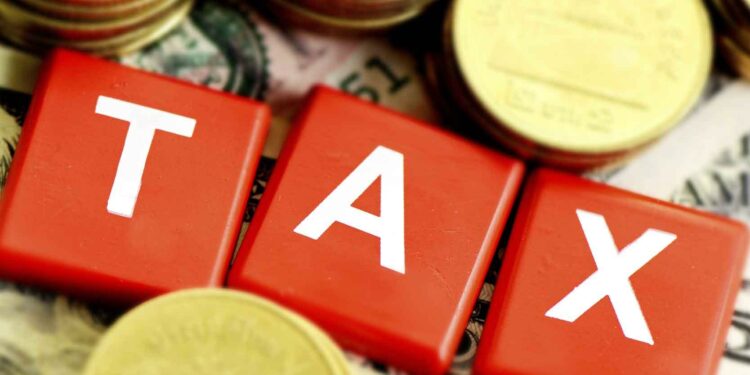ISSER proposes tax policy overhaul, advocates for cessation of GHS 25bn tax exemptions for foreign company
On the direct taxation front, ISSER calls for the introduction of a 35% marginal income tax rate for individuals, a measure aimed at augmenting government revenue from personal income taxes. Furthermore, the revision of upper limits for vehicle benefits is urged, offering potential room for additional fiscal gains.
The Institute of Statistical, Social and Economic Research (ISSER) in Ghana has submitted a set of comprehensive fiscal policy recommendations for the 2024 Budget, urging a recalibration of the nation’s economic policies. At the heart of ISSER’s proposals lies a call for a measured reevaluation of the country’s taxation and expenditure framework, with a focus on optimizing revenue generation and fiscal discipline.
One of the boldest measures suggested by ISSER is the cessation of new tax exemptions for foreign companies. The institute’s stance is anchored in the revelation that Ghana hemorrhages approximately ¢25 billion annually through tax concessions, a glaring fiscal leak that has prompted widespread calls for an overhaul of the tax exemption system.
To further bolster government coffers, ISSER has advised a reexamination of tax incentives extended to both free zones and the extractive industries, emphasizing the importance of ensuring that exemptions are aligned with the national interest and development goals.
Additionally, ISSER advocates for a prudent reduction in the Electronic Transfer Levy rate, from 1.5% to 1% of transaction value. In tandem with this reduction, ISSER suggests the removal of daily thresholds, potentially broadening the tax base for electronic transactions.
Import duties are also under the microscope, with ISSER recommending the discontinuation of discounts on benchmark import values for certain imported goods and vehicles. Such a move could bolster government revenues and align the nation’s tariff structure with its fiscal needs.
In a bid to rejuvenate infrastructure funding, the institute endorses the re-implementation of public road tolls on selected routes. ISSER additionally recommends the introduction of a Self Clearance system at ports for imports, streamlining customs clearance and bolstering efficiency.
To augment Value Added Tax (VAT) compliance and revenue collection, ISSER proposes the expansion of VAT invoicing to encompass all VAT taxpayers by 2024, a measure that promises to enhance transparency in the taxation ecosystem.
On the direct taxation front, ISSER calls for the introduction of a 35% marginal income tax rate for individuals, a measure aimed at augmenting government revenue from personal income taxes. Furthermore, the revision of upper limits for vehicle benefits is urged, offering potential room for additional fiscal gains.
In a bid to curtail redundancy in the tax framework, ISSER advocates the transformation of the National Fiscal Stabilisation Levy (NFSL) into a more comprehensive Growth and Sustainability Levy (GSL), covering all entities. This consolidation seeks to alleviate the duplication of fiscal burdens across sectors.
In tandem with the taxation measures, ISSER’s recommendations extend to prudent expenditure management. They propose the freezing of public sector employment, rigorous evaluation of government programs for relevance and efficiency, and the integration of public procurement approval processes with the Ghana Integrated Financial Management Information System (GIFMIS) to ensure that projects align with budget allocations. Additionally, ISSER calls for a comprehensive review of the efficiency of statutory funds, addressing any potential leakage in government resources.
As the Ghanaian government grapples with fiscal challenges and revenue optimization in 2023, ISSER’s fiscal prescriptions offer a roadmap towards greater fiscal sustainability and a potential safeguard against economic volatility.


